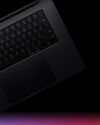
Founded by a former director of the National Security Agency and stacked with elite members of the U.S. intelligence establishment, IronNet promised it was going to revolutionize the way governments and corporations combat cyberattacks.
Its pitch — combining the prowess of exgovernment hackers with cutting-edge software – was initially a hit. Shortly after going public in 2021, the company’s value shot past $3 billion.
Yet, as blazing as IronNet started, it burned out.
Last September the never-profitable company announced it was shutting down and firing its employees after running out of money, providing yet another example of a tech firm that faltered after failing to deliver on overhyped promises.
The firm’s crash has left behind a trail of bitter investors and former employees who remain angry at the company and believe it misled them about its financial health.
IronNet’s rise and fall also raises questions about the judgment of its well-credentialed leaders, a who’s who of the national security establishment. National security experts, former employees and analysts told that the firm collapsed, in part, because it engaged in questionable business practices, produced subpar products and services, and entered into associations that could have left the firm vulnerable to meddling by the Kremlin.
“I’m honestly ashamed that I was ever an executive at that company,” said Mark Berly, a former IronNet vice president. He said the company’s top leaders cultivated a culture of deceit “just like Theranos,” the once highly touted blood-testing firm that became a symbol of corporate fraud.
IronNet’s collapse ranks as one of the most high-profile flameouts in the history of cybersecurity, said Richard Stiennon, a longtime industry analyst. The main reason for its fall, he said: “hubris.”
“The company got what was coming to” it, Stiennon said.
This story is from the {{IssueName}} edition of {{MagazineName}}.
Start your 7-day Magzter GOLD free trial to access thousands of curated premium stories, and 9,000+ magazines and newspapers.
Already a subscriber ? Sign In
This story is from the {{IssueName}} edition of {{MagazineName}}.
Start your 7-day Magzter GOLD free trial to access thousands of curated premium stories, and 9,000+ magazines and newspapers.
Already a subscriber? Sign In

AI Home
THE NEXT FRONTIER FOR APPLE INTELLIGENCE, INTERACTION, AND AUTOMATION

Watch
SERIES 10 & ULTRA 2: REFRESHING THE LINEUP WITH NEW FINISHES & BOLD COLORS

Mac mini
SMALL IN SIZE, POWERFUL, AND ENGINEERED FOR APPLE INTELLIGENCE

iMac M4 INTRODUCING THE FIRST APPLE DESKTOP READY FOR ADVANCED AI
Apple has taken another step towards revolutionizing the world of personal computing with the launch of its latest iMac.

MacBook Pro M4 UNMATCHED AI PERFORMANCE THROUGH A NEW STUNNING XDR DISPLAY
Apple has launched its latest lineup featuring the cutting-edge M4 chip family and the all-new Apple Intelligence system.

New-Gen iPads
2024 AIR AND PRO LINES BRING IDEAS TO LIFE LIKE NEVER BEFORE

Assistance A NEW PRODUCTIVITY ERA BEGINS FOR THE ENTIRE APPLE ECOSYSTEM
As Apple continues to lead in hardware-software integration, the debut of Apple Intelligence reinforces its commitment to offering an AI experience unique to its ecosystem, one that aligns with the company’s ethos of privacy and ease of use.

NVIDIA®
THE BREAKTHROUGHS BEHIND THE LATEST AI HARDWARE

2025 SCALING NEW HEIGHTS IN PROCESSING POWER
Over the past few years, Apple has reshaped nearly every part of its ecosystem, from the hardware to the software, to push the boundaries of technology.

iPad mini - AI-READY DESIGN: THE A17 CHIP POWERHOUSE IN A COMPACT SIZE
Technology continues to shrink in size yet grow in capability, and the new iPad mini is no exception. The robust tool was designed to meet the demands of both personal and professional users.